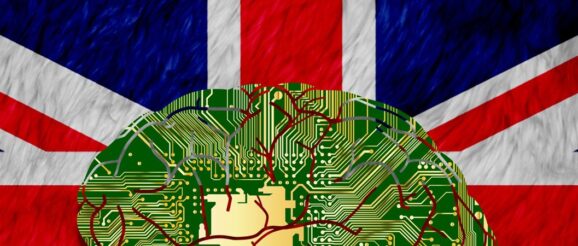UK launches £1.5m AI green innovation programme


The AI for Decarbonisation Programme is part of the government’s broader £1bn Net Zero Innovation Portfolio, which aims to provide funding for low-carbon technologies to help bring them to market quicker.
The BEIS claimed the programme will not only help the UK achieve its net-zero goals, but also help bring down energy costs and increase the AI technology’s market growth in the country.
The programme is made up of two separate streams for grant funding, which will be launched in phases.
The first, worth up to £500,000, will be used to co-fund a virtual centre of excellence on AI innovation and decarbonisation through to March 2025. The second is worth up to £1m and is designed to fund projects that will accelerate the development of AI technologies that enable decarbonisation.
“The UK is one of the world’s most advanced AI economies, and AI technology is already having a transformative impact on our economy and society,” said George Freeman, the UK’s science minister. “But there is tremendous potential to do more.
“The AI for Decarbonisation programme offers an exciting opportunity to leverage and develop the UK’s outstanding expertise in the field.
“Putting this rapidly evolving technology into action will enable us to save energy costs for businesses and households, create high-value, skilled jobs, and kickstart millions of pounds of private investment while supporting our net-zero targets.”
The BEIS has encouraged projects that facilitate a faster transition to renewable energy, decarbonise industry by enhancing energy productivity and fuel switching, and lower emissions in agriculture to apply. The application period is expected to be open until
BEIS said it also intends to follow this programme next year with additional funding that will be used to support “priority areas in AI innovation” identified by the virtual centre of excellence as being “critical for achieving net-zero”.
The programme’s launch follows the publication of the 2021 National AI strategy, which set out ways that AI could be used to help the UK meet its net-zero targets.
Over the past year, artificial intelligence solutions have been increasingly popular as tools to solve some of society’s current and future challenges.
Recently, researchers at the University of Kansas used machine learning to create ‘deep-fake’ proteins to detect polluting metal ions in water and a team at the University of the West of Scotland has created an AI to quickly detect a range of different lung diseases in a matter of minutes, with a claimed accuracy of around 98 per cent.
Although AI has great potential, it can also cause harm. In order to safeguard users’ digital and civil rights in an AI-fuelled world, the White House has recently unveiled a new AI Bill of Rights.
